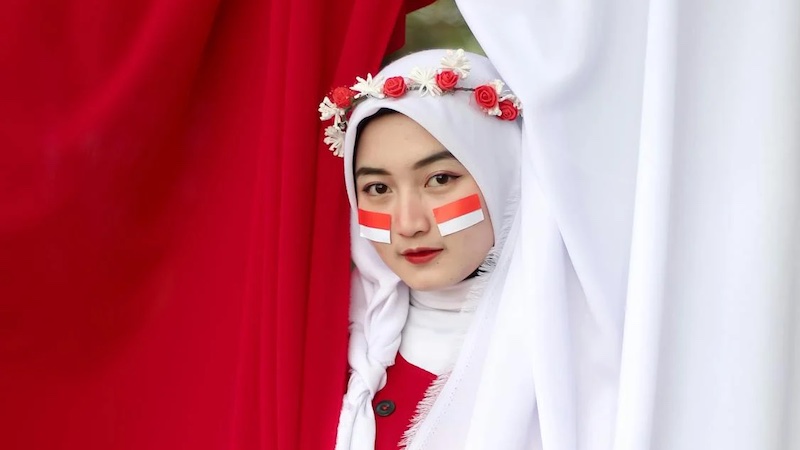Indonesia On World Stage: A Multifaceted Approach To Sustainable Development And International Relations – Analysis

Indonesia's foreign policy strategies are characterized by a multifaceted approach aimed at strengthening its global presence through economic cooperation, diplomatic engagement, cultural diplomacy, and regional stability. Leveraging its strategic position and resources, Indonesia seeks to enhance its influence and foster domestic and international sustainable development.
Analysis
Introduction
As the world's fourth most populous country and the largest economy in Southeast Asia, Indonesia plays a pivotal role in global geopolitics. Its foreign policy is crafted to reflect its growing economic capabilities and geopolitical aspirations. This essay delves into Indonesia's foreign policy strategies across various regions, including Africa, Europe, South America, Southeast Asia/East Asia, Central America, the Pacific, the United Nations, the Middle East, and South and Central Asia. Through detailed analysis, this essay aims to highlight key elements of Indonesia's foreign policy and provide recommendations for enhancing its effectiveness.
Africa
Indonesia's foreign policy in Africa focuses on strengthening trade and investment ties, particularly in the mining, agriculture, and energy sectors. Diplomatic engagement is pursued through active participation in forums like the African Union (AU) and the Non-Aligned Movement (NAM). Additionally, Indonesia assists health, education, and governance to foster goodwill and build long-term partnerships.
Europe
Indonesia is focused on enhancing economic partnerships to improve market access for its goods and services. The country is also placing a strong emphasis on cultural diplomacy to boost Indonesian culture tourism through exchange programs and festivals. Additionally, Indonesia is prioritizing environmental cooperation by collaborating on climate change initiatives and sustainable development projects.
South America
Indonesia's approach involves pursuing free trade agreements and economic cooperation to bolster trade. The country is also working on strengthening diplomatic ties through high-level visits and bilateral cooperation in areas such as agriculture and energy technology. Moreover, educational exchanges are being promoted to enhance mutual understanding and foster people-to-people connections.
Southeast and East Asia
Indonesia is fully committed to strengthening ASEAN's centrality and unity while promoting regional economic integration and stability. Emphasizing maritime security, Indonesia is focusing on key efforts to enhance cooperation on issues such as piracy and freedom of navigation. The country is actively pursuing economic diplomacy by fostering trade, investment, infrastructure, and development projects, particularly under the Belt and Road Initiative (BRI) with China and other regional frameworks.
Central America
Indonesia is dedicated to establishing and strengthening diplomatic relations through embassies and high-level visits. The country's priority is to promote trade and investment in key sectors such as agriculture, textiles, and tourism. Additionally, Indonesia provides technical assistance and capacity-building programs in disaster management, agriculture, fisheries, and other areas to support regional development.
The Pacific
Indonesia's engagement with Island countries includes participation in forums such as the Pacific Forum Islands (PIF) and the Melanesian Spearhead Group (MSG). Development aid focuses on education, infrastructure, and health, considering the region's vulnerability to climate change, Indonesia collaborates on climate change mitigation and adaptation projects.
United Nations
Indonesia is actively engaged in multilateral diplomacy at the United Nations and contributes to peacekeeping missions. It supports and promotes international cooperation for the Sustainable Development Goals (SDGs). Indonesia also participates in global dialogues to advocate for human rights and democracy.
Middle East
Indonesia's foreign policy focuses on strengthening energy partnerships, particularly in the oil and gas sectors. The country also prioritizes enhancing economic relations through trade agreements and investment opportunities. Leveraging cultural and religious diplomacy, Indonesia fosters relations based on its position as the largest Muslim-majority country.
South and Central Asia
Indonesia promotes economic connectivity through trade and infrastructure projects under regional frameworks like the Indian Ocean Rim Association (IORA) and the Bay of Bengal Initiative for Multi-Sectoral Technical and Economic Cooperation (BIMSTEC). Collaboration on security issues, such as counter-terrorism and combating extremism, is essential. Additionally, Indonesia enhances cultural and educational exchanges to build stronger people-to-people connections.
Recommendations
1. Economic Diplomacy: Indonesia should give priority to economic diplomacy by creating favourable trade agreements and attracting foreign investment. This includes active participation in economic regional and blocs and negotiating bilateral trade deals.
2. Strengthening Regional Alliances: Reinforcing ties with ASEAN and other regional organizations is crucial for Indonesia to maintain its influence and stability in Southeast Asia. Active participation in regional security frameworks and economic initiatives is essential.
3. Cultural Diplomacy Promotion: Indonesia can enhance its soft power by leveraging its rich cultural heritage. Expanding cultural exchange programs, tourism initiatives, and educational partnerships can foster goodwill and mutual understanding.
4. Sustainable Development: Indonesia should uphold its commitment to sustainable development, particularly through cooperation with Europe and the Pacific. Focusing on climate change mitigation, renewable energy projects, and environmental conservation can bolster its international reputation.
5 . Diversifying Diplomatic Engagements: Expanding our diplomatic efforts to include regions that are currently underrepresented, such as Africa and Central America, will create new opportunities for cooperation and development. By establishing more embassies and consulates in these areas, we can strengthen our bilateral ties and foster mutually beneficial relationships.
Conclusion
Indonesia's foreign policy strategies demonstrate its ambition to have a significant global presence. With a focus on economic cooperation, diplomatic engagement, cultural diplomacy, and regional stability, Indonesia seeks to bolster its influence and promote sustainable development. By consistently implementing these strategies and heeding targeted recommendations, Indonesia can solidify its position on the global stage and make constructive contributions to international relations.
The opinions expressed in this article are the author's own.
References
- Indonesian Ministry of Foreign Affairs. (2023). "Indonesia's Foreign Policy Framework." Retrieved from Indonesian Ministry of Foreign Affairs.
- ASEAN Secretariat. (2023). "ASEAN Integration and Indonesia's Role." Retrieved from ASEAN.
- United Nations. (2023). "Indonesia's Participation in UN Peacekeeping Missions." Retrieved from United Nations.
- African Union. (2023). "Indonesia's Engagement with the African Union." Retrieved from African Union.
- Pacific Islands Forum Secretariat. (2023). "Indonesia's Role in the Pacific Islands Forum." Retrieved from Pacific Islands Forum.
